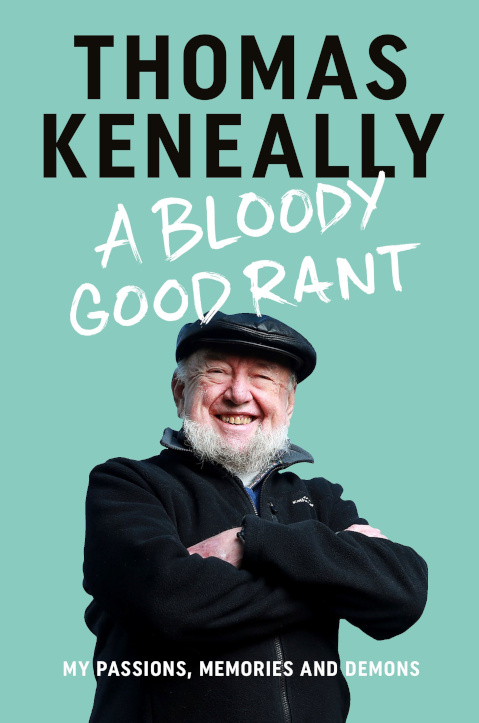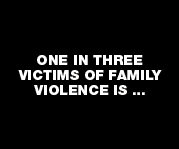Submission to Inquiry into the Family Law Amendment Bill 2003
* After having done this program for almost three years we are aware of the enormous animosity in the community towards the institutions of family law and child support, including the Family Court of Australia and the Child Support Agency. By extension this animosity extends to the family law units of Legal Aid, to the Commonwealth Ombudsman's Office over its perceived failure to deal appropriately with complaints, and with the Attorney General's Department itself for its protection of the status quo.
* We at Dads On The Air believe that the level of intense disenchantment with the operations of these Acts and the institutions that administer them does the country and the government great harm. It is not good for the nation to have such a large number of people fundamentally disgusted with the impacts on their private lives of state institutions. There are many who argue that family law in this country has brought the legal profession into disrepute. We most certainly believe that the destructive social impacts of the present system dealing with family breakdown needs to be taken into account by this Committee. It is also our observation that there is ample evidence to suggest that a "rebuttable presumption of joint custody" would ameliorate many of the negative personal and social outcomes we are presently experiencing.
* As the numerous media straw polls, the volume of talkback and the extensive television and print coverage, all largely supportive of the notion of shared parenting, have illustrated since this inquiry was announced, only a minority of the population believe the present system is working appropriately. Bold moves to reform family law and child support are widely supported. With this level of public support there has never been a better time to successfully implement fundamental reforms.
* There is broad recognition of the problems with family law and child support and the poor life outcomes for parents, grandparents and children, caught in destructive legal conflicts. The difficulties and negative impacts on separated fathers, largely as a result of the operation of family law and hence their treatment at the hands of government agencies, are beginning to be documented and recognised by the academy. For further details we refer you to the work of the Men's Health and Information Resource Centre at the University of Western Sydney.
* In our observations one of the great positives of the joint custody proposal would be the maintenance of contacts with both sets of grandparents. These are vital arrangements for the children of separation. But the plight of second families and other relatives and even friends should be taken into account in the administration of child support and family law. Many relationships are being unnecessarily destroyed under the present sole custody regime, causing heartbreak to adults and children alike.
* It is our view that for there to be a genuine and effective introduction of joint custody as the "presumptive norm" on separation there needs to be fundamental and sweeping reform of the institutions responsible for the current poor situation.
* We are aware of a number of scandals circling the operations of family law and child support in Australia which have the potential to seriously embarrass the government. It is unlikely that the mainstream media's traditional reluctance to broach these issues will continue. We believe if the government does not take action it will ultimately be propelled to do so.
* The disenchantment with the operations of the Family Court are broad and profound and extend to the operations of the family law units of Legal Aid. The systemic abuse of psychiatric evidence within the court is at the heart of its discredited practices. It is self-evident that the court uses those psychiatrists and family report writers, the evidentiary basis of Australian family law, which comply with its agenda. The conduct of this comparatively small clique of report writers should be the subject of a Royal Commission or similar inquiry. Michael Green QC, author of Fathers After Divorce, described the reports on which decisions are often based almost exclusively as "very very poor and entirely suspect". That's being polite. The poor quality, extreme bias and often farcical nature of these reports will ultimately be exposed as corrupt practice. We suggest that any objective investigation into their conduct would provide enough evidence for them to be de-registered, if not charged. The circular nature of the complaints system with Health Care Complaints Units referring complaints back to the court has failed the consumers of these services. Any reform of family law and the introduction of shared parenting or joint custody cannot proceed effectively while these practices continue.
* The excellent work done by Senator Brett Mason through estimates committees to expose the travel budgets of the court provide good evidence for the luxurious lifestyles lived by the senior figures of the court, including astonishingly leisurely conference tours. This conduct does the public faith in the court no good when it is characterised by backlogs, extensive delays and elaborately time-consuming procedures. Now that interest in the court is aroused more exposures of these kinds are likely to gain much wider attention, as will the court's judgments.
* The ALRC's 1999 report exposing overwhelming disquiet with the Family Court and its processes should also be taken into account by the committee as confirmation of the public's unhappiness. While this inquiry may in fact fulfil some of the same functions, it is unfortunate that the recommendations of that report for an external review of the court have not been put into action.
* We believe a proper external audit of the court would reveal much utterly inappropriate conduct by the judges of the Family Court and there is much anecdotal and documentary evidence to support this claim. We have personally witnessed one judge ridiculing a father who expressed a desire to see his 15 year old son after the boy attempted suicide. The mother was, with the apparent support of the court, blocking him from seeing his kid. The conversation went roughly as follows. The exact wording could be found from transcripts and we could give you names and dates if you were interested.
Judge: What do you mean Mr Y when you say in your avadavat that you were sorry not to able to speak to your son after his suicide attempt?
Father: I merely meant that after such a distressing event it would have been nice to be able to speak to him.
Judge: What you meant was you wanted to be there to watch, didn't you, didn't you?
Father: Excuse me Your Honour. I merely meant....
Judge: You wanted to be there to watch, didn't you, didn't you!? This appalling display went on for quite some time and was just one example of inappropriate behaviour from a senior judge. There are many others, from sheer incompetence in not getting even basic things like trial dates correct to placing children in dangerous situations. The recent case which received media coverage in Sydney of a child who swallowed a number of ecstasy tablets hidden inside a kid's chocolate was the subject of a custody dispute. There are also numerous cases of blatant and extreme bias in judgments, startling leaps of logic, anti-father rhetoric and reliance on the clearly biased approaches of court counsellors and the court's favourite psychiatrists. Ridiculing and denigrating fathers who become obsessed with clearing their name after false sexual abuse allegations is another example of the court behaving inappropriately. Crucifying fathers, and occasionally mothers, who disagree with the line of the court is common place. With many outraged fathers leaving document trails a mile wide, more scandals will be exposed. A new broom and the instigation of joint custody as a rebuttable presumption would do much to restore the community's faith in government institutions and in the judiciary.
* Section 121 of the Family Law Act. From our perspective the government was wrong not to repeal this notorious piece of legislation when it had the opportunity. The traditionally secretive and defensive nature of the Family Court has done much to cloud issues surrounding its operations. It is unlikely the Court's present culture would have evolved with proper media scrutiny. While not always comfortable the media plays an important role in educating the populace about the operations of institutions, in keeping those institutions in line with public opinion and changing social mores and in keeping the processes used by those institutions fair and reasonable. This has not happened with the Family Court, as its resistance to common sense notions of joint custody and shared parenting proposals illustrates.
* The issue of the death rate of child support payers will not go away. These schemes are being associated with high death rates amongst separated men wherever they operate in the Western world. Family law reform groups around the country have all claimed that it is likely that around three clients of the Agency suicide each day. The official suicide statistics do not rule out the feasibility of the claim. The government has acknowledged that there is no documentary evidence to contradict the claim. Others suggest that the death rate is likely to be higher than the mere suicide rate suggests because of the poor health outcomes for separated men, exacerbated by poverty, depression and loss of children. The government through the Minister Larry Anthony has acknowledged that it does not know how many clients die each day. This is an extraordinary admission. The government needs to take immediate action to monitor the death rate of child support payers so that it can be compared with the general population. It needs to immediately release the figures on how many clients are dying. This is a fundamentally significant indicator of the health of family law in Australia.
* The Child Support Agency needs to be either totally reformed or abolished. It is a clear case of good intentions gone savagely wrong. The take per child is now less than when it was created. The CSA is one of the most deeply hated of all government institutions. There are numerous very well-documented tales of the CSA's destructive impacts on people's lives, including on second families. One interview we conducted at an information night, a second wife lamented that her husband had been stressed out of his mind and had a brain tumour. We asked if the cancer had made the CSA lay off. "Are you joking!?" she asked. It made good radio. It doesn't make for a good society. The Agency creates massive conflict between separated couples and between itself and its clients. It acts to discourage co-operative parenting after separation. It promotes welfare dependence and is the driving force behind the extremely high unemployment rates of separated fathers. It needs to be reformed or abolished to encourage productive and co-operative joint custody arrangements to become the norm.
* We refer the government to the analysis of the costs of the Agency by PIR research, which indicates that the Agency is likely to cost the government, and thereby the community, $40 billion over the next decade in unemployment payments and lost productivity as a result of the extremely high level of unemployment associated with it - 39%, with even higher percentages not filing tax returns.
* We would also like to strongly recommend to this committee that in their further gathering on information on these subjects the views of the former chairman of the 1992 Inquiry into Child Support Roger Price would prove invaluable. He has previously described the level of anger in the community over child support issues as alarming. The recommendations of his report that the social impacts of the scheme be studied have never been implemented.
* At one CSA information night we reported on the first man to stand up shouted "You people are reprehensible" and the entire room, split 50/50 men and women, burst into applause. Its labyrinthine rules, draconian approaches including their penalty regimes, treatment of parents and particularly fathers with antagonism, constant and often conflicting letters, inability to keep to arrangements, all are subject of complaint from fathers, mothers and second wives. Allowing public servants to "deem" somebody's income is leading to demonstrable abuses.
* The Shared Parenting Council of Australia will no doubt provide the Committee with all the significant research on the positive outcomes for parents and children in joint custody arrangements. It is our observation that joint custody as the presumptive norm would have avoided many of the negative impacts in the cases we have observed. An effective implementation of joint custody with concurrent welfare, child support, taxation and institutional reform could reduce government outlays while greatly improving outcomes for children and all involved, including grandparents, as separated parents were encouraged to both actively care for their children and to find styles of employment which allowed them to remain free of the welfare system.
Submission from the Dads On The Air Team
19 January 2004












